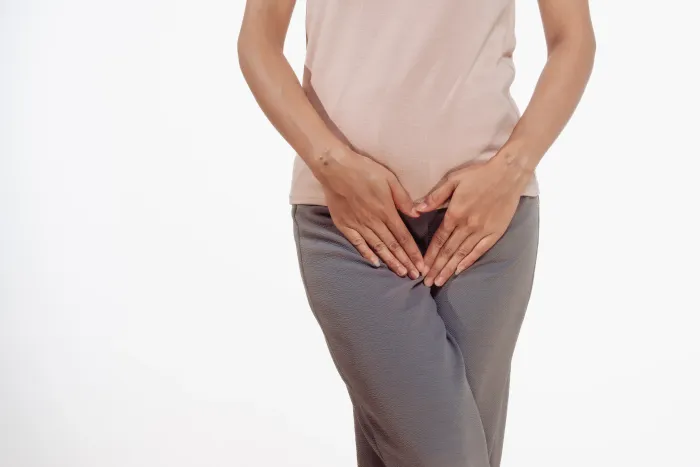Best Home Remedies For Vaginal Dryness And Discomfort
Learn safe, effective vaginal dryness remedies. Simple tips for natural lubrication, comfort, and women’s health—plus when to see a clinician.


Introduction
Vaginal dryness is common and can affect intimacy, daily comfort, and overall women’s health. It’s especially frequent during perimenopause and menopause, after childbirth and while breastfeeding, and with certain medicines. The good news: many symptoms improve with simple, evidence-based self-care. This guide shares safe, practical home strategies for natural lubrication, explains when a vaginal dryness remedy is enough, and when it’s time to talk with a clinician.
What Causes Vaginal Dryness?
Understanding the cause helps you choose the most effective fix. Here’s what causes vaginal dryness:
• Lower estrogen: The most common driver is a natural drop in estrogen during perimenopause and menopause. Temporary low estrogen also happens postpartum and while breastfeeding.
• Medications: Antihistamines and some antidepressants can reduce moisture; cancer treatments such as chemotherapy and pelvic radiation can thin tissues.
• Stress and low arousal: Anxiety, relationship stress, or inadequate foreplay can reduce natural lubrication.
• Irritants: Fragranced soaps, bubble baths, douching, and scented pads or liners can dry and inflame delicate tissue.
• Medical conditions and lifestyle: Autoimmune disorders (for example, Sjögren’s syndrome), smoking, and some chronic illnesses can contribute.
If dryness comes with new itching, strong odour, unusual discharge, genital sores, or pelvic pain, seek care to rule out infection or dermatologic conditions.
Best Home Remedies: Your Step-by-Step Vaginal Dryness Remedy
These nonprescription options are considered first-line self-care for vaginal dryness. Here are some remedies to use for vaginal dryness:
1) Use a Vaginal Moisturiser (Routine Care, Not Just for Sex)
• What it does: A vaginal moisturiser hydrates and maintains the vaginal lining over time, improving everyday comfort and helping restore the tissue’s natural balance.
• What to look for:
o Polycarbophil-based moisturisers (cling to the vaginal lining, used a few times per week).
o Hyaluronic acid vaginal gels (bind water and may improve elasticity and comfort).
o Fragrance-free, alcohol-free, dye-free formulas.
• How to use: Apply internally as directed (often every 2–3 days). Results typically build over 1–2 weeks.
2) Add a Lubricant for Sexual Activity
• What it does: Reduces friction right away to prevent microtears and discomfort during sex.
• Types:
o Water-based: Easy to clean, condom-compatible, widely available.
o Silicone-based: Longer-lasting, especially helpful for severe dryness; also condom-compatible.
• Tips for sensitive skin: If you’re prone to irritation, choose a simple formula and consider glycerin-free products.
• How to use: Apply generously to the vaginal opening and any area experiencing friction. Reapply as needed.
3) Soothe the Vulvar Skin (External Care)
• Keep the vulva comfortable by avoiding scented products and using a small amount of a bland, unscented emollient externally (for example, plain petroleum jelly) to protect skin. Do not insert emollients inside the vagina.
4) Support Natural Lubrication with Gentle Habits
• Prioritise arousal: Take more time for foreplay. Arousal increases blood flow, which supports natural lubrication.
• Maintain regular sexual activity if comfortable: Ongoing sexual activity or other forms of arousal can help keep tissues flexible and maintain blood flow.
• Stay irritation-free:
o Skip douching (it upsets the vaginal ecosystem).
o Choose unscented, gentle cleansers; wash with warm water only; avoid scrubbing.
o Wear breathable cotton underwear; change out of wet or sweaty clothes soon after activity.
5) Lifestyle Adjustments That Help
• Quit smoking: Smoking lowers blood flow and can worsen dryness.
• Manage stress: Relaxation techniques, counselling, or mindfulness can enhance arousal and comfort.
• Review medications with your clinician: If a medicine is drying, ask if alternatives exist.
Caution with Home Oils and “DIY” Products
• Oil-based products (coconut oil, olive oil, petroleum jelly used internally) can weaken latex condoms and diaphragms, increasing the risk of breakage. Oils may also irritate some people. If you choose to try an oil externally for skin comfort, patch-test first and avoid use with latex barriers.
• Probiotics, yoghurt, and herbal supplements are not proven vaginal dryness remedies. If you’re considering supplements (such as phytoestrogens), discuss benefits and risks with your clinician.
How to Choose a Safe Lubricant or Moisturiser?
Because the vagina is sensitive, small formulation details matter. So, here’s how to choose a safe lubricant or moisturiser:
• Check the purpose:
o Lubricant: Short-term, used during sex.
o Moisturiser: Long-acting, used several times per week for daily comfort.
• Look for:
o Water- or silicone-based lubricants; polycarbophil or hyaluronic acid in moisturisers.
o Fragrance-free, alcohol-free, and dye-free products.
• Condom and toy compatibility:
o With latex condoms: Use only water- or silicone-based lubricants. Oils can damage latex.
o With silicone sex toys: Water-based lubricants are best (some silicone lubes can degrade silicone toys).
• Gentle on tissues:
o If you’re prone to irritation or recurrent yeast infections, try glycerin-free, propylene-glycol–free, or paraben-free formulas.
o Some products note “iso-osmolar” or “low osmolality,” which may be gentler on tissues.
• Patch-test: Apply a small amount to the inner forearm or external vulva first and wait 24 hours if you have sensitive skin.
Consult Top Specialists
Natural Lubrication Tips for More Comfortable Intimacy
• Communicate with your partner about pacing and comfort; use more foreplay to enhance natural lubrication.
• Warm the lubricant in clean hands before applying for a more natural feel.
• Try positions that reduce friction or allow you to control depth and speed.
• If penetration is painful, pause and add more lubricant. Pain is a signal to stop and adjust.
When Home Care Isn’t Enough—See a Clinician
Make an appointment if you have any of the following:
• Symptoms that don’t improve after 2–4 weeks of consistent use of moisturisers and lubricants.
• Bleeding after sex, new or worsening pain, cracks or sores, or persistent burning.
• Recurrent urinary tract infections or a frequent urge to urinate.
• Unusual discharge or strong odour (possible infection).
• You’re undergoing cancer treatment, have autoimmune conditions, or are unsure of the cause.
Medical Treatments Your Clinician May Discuss
While not home remedies, it helps to know effective medical options exist if symptoms persist:
• Low-dose vaginal estrogen (cream, tablet, or ring) delivers estrogen directly to the tissues with minimal systemic absorption and is highly effective for genitourinary syndrome of menopause.
• Vaginal dehydroepiandrosterone (DHEA) and oral ospemifene are additional options for certain patients.
• Pelvic floor physical therapy for pain with penetration or pelvic muscle tension.
Consult Top Specialists

Dr. Sreeparna Roy
Obstetrician and Gynaecologist
8 Years • MBBS , MS (OBSTETRICS & GYNAECOLOGY), Fellowship in Infertility, Endoscopy & Ultrasonography), Fellowship in Laparoscopy & Hysteroscopy,DRM
Barasat
Diab-Eat-Ease, Barasat

Dr. Soumya P
Obstetrician and Gynaecologist
6 Years • MBBS,MS (OBST & GYNAE)
Bengaluru
Apollo Clinic, JP nagar, Bengaluru

Dr. Sunabha K Ghosh
Obstetrician and Gynaecologist
9 Years • MBBS, MS (Obstetrics & Gynaecology), DNB (Obstetrics & Gynaecology), MIAGE, RCOG Associate [UK]
Kolkata
Gajanan Multispeciality Clinic, Kolkata

Dr. Millie Dasgupta
Obstetrician and Gynaecologist
10 Years • MBBS,DNB (Obst. & Gynae.)
Kolkata
MCR SUPER SPECIALITY POLY CLINIC & PATHOLOGY, Kolkata

Dr. Sangeetha M
Obstetrician and Gynaecologist
21 Years • MBBS, MS ( Obstetrics & Gynaecology )
Bansdroni
Siddhita Healthcare., Bansdroni
Frequently Asked Questions
1) What’s the difference between a vaginal moisturiser and a lubricant?
A moisturiser is for routine use (often every 2–3 days) to hydrate the vaginal lining and improve daily comfort. A lubricant is for short-term, on-the-spot slickness during sexual activity to reduce friction and pain. Many people use both.
2) Is coconut oil a good vaginal dryness remedy?
It may feel soothing for some, but oils can irritate others and they weaken latex condoms and diaphragms, increasing breakage risk. Safer first-line choices are water- or silicone-based lubricants and dedicated vaginal moisturisers. If you try an oil externally, patch-test and avoid use with latex barriers.
Do probiotics, yoghurt, or herbal supplements help with vaginal dryness?
There’s no strong evidence that they relieve dryness. Dryness is commonly related to low estrogen or irritation. If you’re considering supplements (such as phytoestrogens), talk with your clinician about potential benefits, side effects, and interactions.
4) Can I use vaginal moisturisers during pregnancy or while breastfeeding?
Nonhormonal lubricants and moisturisers are generally considered safe, but check the product label and speak with your clinician, especially if you’re pregnant or postpartum. Breastfeeding-related dryness is common due to temporarily lower estrogen and usually improves over time.
5) How long will it take to feel better?
Many people notice relief within days of starting a lubricant for sex and within 1–2 weeks of regularly using a vaginal moisturiser. If you don’t notice improvement after 2–4 weeks, or if symptoms worsen, see a clinician.